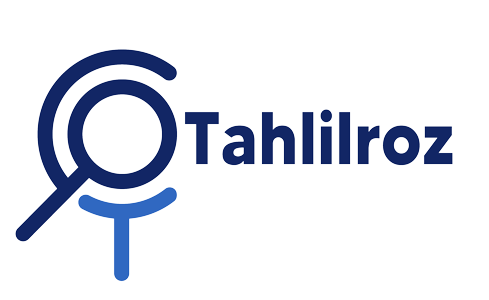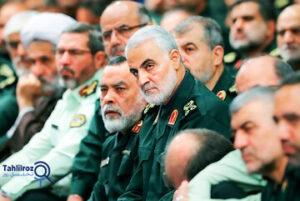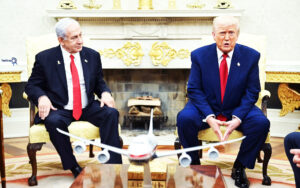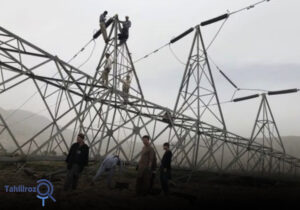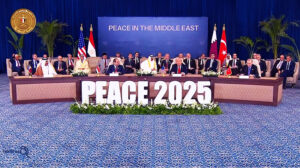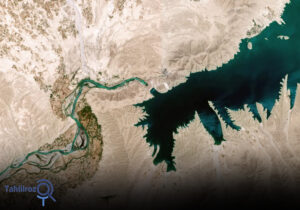Return of Saudi Arabia to Afghanistan
The Return of Saudi Arabia to Afghanistan and the resumption of diplomatic relations with the Taliban have attracted analysts’ attention. Saudi Arabia, which suspended its relations with Kabul after the fall of the Afghan government in 2021, is now seeking to play a role in the country with a new approach.
However, the fundamental question is what factors have caused Saudi Arabia’s change in policy towards Afghanistan? Is this return solely due to economic opportunities and projects such as TAPI, or have regional and geopolitical competitions also played a role in this decision? This article attempts to answer these questions and analyze and evaluate the gradual return of regional countries to Afghanistan.
-
The gradual return of regional countries to Afghanistan
After the fall of the Afghan government in August 2021 and the return of the Taliban to power, many countries in the region stopped or suspended their diplomatic relations with Kabul. These decisions were mainly influenced by security concerns and the refusal to accept the Taliban as the official government of Afghanistan. However, in the past two years, there have been significant changes in the approach of these countries.
For example, India, which was one of the main supporters of the republican governments, initially took a cautious stance towards the Taliban. However, over time and due to the need to maintain its strategic interests in Afghanistan, it resumed its diplomatic relations with the Taliban. This change in approach reflects India’s understanding of the importance of Afghanistan in regional equations.
Although China, as one of the economic and political powers in the region, initially engaged with the Taliban due to Afghanistan’s position in the “Belt and Road” project and security concerns related to Xinjiang province, Beijing has gradually expanded its relations with Kabul and is trying to play a greater role. For example, China’s investments in the mining sectors of Afghanistan are also part of this new approach of this country.
Russia also initially engaged in limited engagement with the Taliban due to security concerns in Central Asia, but over time it has actively participated in Afghan affairs and has taken significant steps to expand relations with the Taliban, which could lead to Moscow removing the Taliban from the list of banned groups, as Russia seeks to maintain its influence in the region and prevent the West from expanding its influence in Afghanistan.
Tajikistan, which was once a staunch critics of the Taliban, has now adjusted its position. By restricting the activities of Taliban opponents on its territory, Dushanbe has shown that it seeks to reduce tensions and build constructive relations with Kabul. This change in policy is likely due to regional pressures and the need to maintain stability on its shared borders.
Iran, due to its deep historical, linguistic, religious and cultural ties with the Afghan people, has tried to engage with the Taliban from the very beginning. This engagement, which initially began cautiously and within the framework of limited diplomacy, has expanded over time and has now spread to various areas, including the economy, security and politics.
Cooperation in the field of water resources management, border trade and security issues are among the issues that the two sides emphasize. Considering the importance of Afghanistan’s stability for the region and its historical ties with the people of this country, Iran has adopted a pragmatic approach towards the Taliban and seeks to maintain stable and constructive relations.
On the other hand, Pakistan, which has long had complex relations with Afghanistan, continues to play an important role in the country’s regional interactions. Although there are currently challenges such as border tensions and mutual accusations of supporting opposition groups, relations between the two countries are still considered positive. For strategic and economic reasons, Pakistan wants to maintain interaction with the Taliban and is trying to exploit the existing opportunities to strengthen bilateral cooperation.
Finally, the Persian Gulf countries, which initially adopted a cautious stance towards the Taliban, have gradually turned to interacting with this group. Qatar has played an important role as a mediator from the very beginning and hosted the Taliban’s negotiations with the United States and other parties. It has gained a special place in Afghanistan’s regional interactions through diplomatic support and providing a space for dialogue.
Along with Qatar, the United Arab Emirates and Saudi Arabia are now gradually returning to the Afghan scene. The UAE is trying to strengthen its position in Afghanistan by providing humanitarian aid and supporting development projects. On the other hand, Saudi Arabia, which had suspended its diplomatic mission in Kabul after August 2021, has now entered into interactions with the Taliban.

-
The Return of Saudi Arabia to Afghanistan; Motives and Opportunities
Saudi Arabia’s return to Afghanistan can be analyzed in the framework of three main axes: First, Saudi Arabia had previously announced its interest in investing in key Afghan projects such as TAPI (Turkmenistan-Afghanistan-Pakistan-India Gas Pipeline). These projects are not only vital for Afghanistan’s economic development, but also provide Saudi Arabia with an opportunity to expand its economic and energy influence in the region. As the launch of projects such as Trans-Afghan and TAPI approaches, Saudi Arabia is likely seeking to establish itself as a key player in these plans.
Second, Afghanistan has an important geographical location as a connecting point between South Asia, Central Asia, and the Middle East. An active presence in Afghanistan allows Saudi Arabia to have the upper hand in regional competitions with Iran, Turkey, and Qatar and to exploit its influence in the region.
Third, Saudi Arabia’s return to Kabul coincides with important changes in the country’s regional policies. It seems that Riyadh, realizing the strategic importance of Afghanistan and the need to keep pace with other countries, is taking advantage of new opportunities in Kabul.
On the other hand, regional rivalries between Saudi Arabia, Qatar, and Turkey also play an important role in Riyadh’s decision to return to Kabul. Qatar has established close relations with the Taliban in recent years and has played a mediating role in intra-Afghan negotiations. Turkey is also seeking to strengthen its presence in Afghanistan by providing technical and security services.
In the meantime, Saudi Arabia does not want to be left behind in these rivalries. Returning to Kabul and participating in large economic projects could strengthen Riyadh’s position against Doha and Ankara. In addition, Saudi Arabia will likely use its diplomatic and economic tools to reduce the influence of its rivals in Afghanistan.
Given what has been said, we now conclude that Saudi Arabia’s return to Afghanistan and its desire to play an extensive role in Kabul indicate its understanding of its strategic importance in the region. Although this process is accompanied by challenges such as security issues and internal complexities in Afghanistan, it also provides significant economic and geopolitical opportunities for Riyadh.
Therefore, overall, the return of Saudi Arabia to Afghanistan is part of a broader process of engagement between regional countries and the Taliban. These developments show that Afghanistan remains a vital point in regional equations and regional actors are trying to strengthen their position in this country.

Najibeh Gholami
